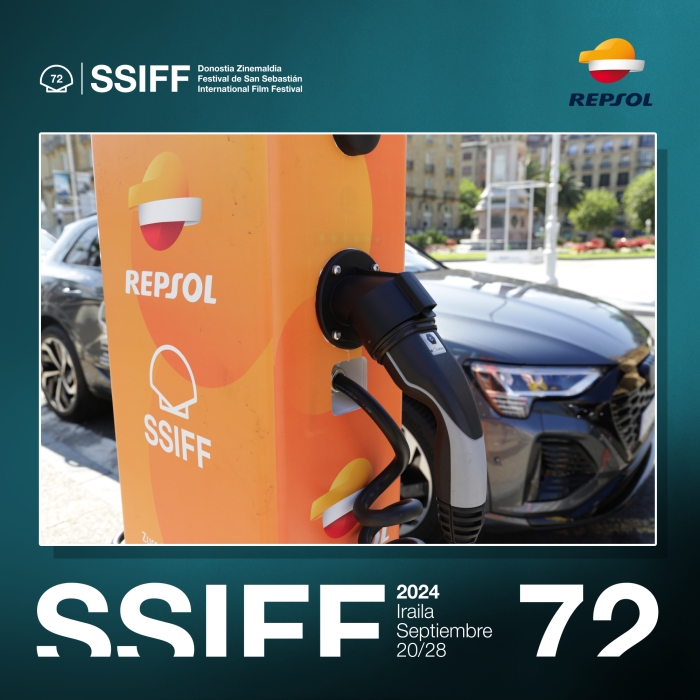The San Sebastián Festival, which continues to make strides toward its goal of becoming a net-zero carbon event, will include Repsol as a multi-energy Partner, enabling the event to take further important steps to reduce its CO2 emissions.
For the second year running the multi-energy company will be providing solutions to reduce the emissions generated by the Festival. So, 100% renewable fuel will be used to transport guests and for Festival staff vehicles. These fuels are made from organic waste such as used cooking oil, pruning remains or agricultural and livestock waste, and they allow for a reduction in CO2 emissions by 80% to 90% compared to mineral fuels. They provide an immediate solution for the decarbonization of various modes of transport and allow the use of existing refueling and distribution infrastructures with the same engine performance: Repsol already has more than 400 service stations with renewable fuels and aims to reach 1,500 by 2025.
Just as it did last year, Repsol will make its entire public charging network in San Sebastián available for use by the Festival's fleet of electric and plug-in hybrid vehicles, with several stations already up and running, and will set up two additional portable charging points on the Paseo de la República Argentina.
Moreover, Repsol will also be supplying the Festival with three generators running on 100% renewable fuel to meet the energy requirements at the closing gala. Finally, Repsol will be setting up (in the plaza Okendo) a portable solar energy-generating solution in the form of a photobooth where anyone can charge their phone or mobile device.
According to the latest sustainability and carbon footprint assessment report for the 71st edition, the Festival managed to reduce its carbon emissions by 14% between 2022 and 2023. In 2022, a full review of the data from the event's activities determined that its carbon footprint stood at 4,147 tons of CO2Eq, a figure that dropped to 3,556.49 tons of CO2Eq in 2023. This represents a 14% reduction in emissions between the two editions. The San Sebastián Festival expresses its satisfaction with Repsol's collaboration for the second consecutive year as a multi-energy Partner, a partnership that will contribute to further progress toward the goal of becoming a carbon-neutral and more environmentally sustainable event.





